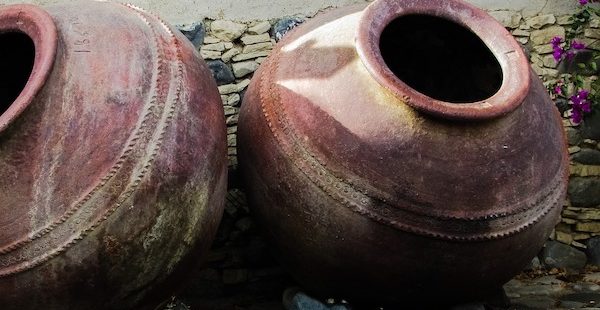
The Marriage at Cana: Entrusting Our Problems to Jesus
The stresses, frustrations, and anxieties of your life are there for a reason. God gives them to you so that you would learn to entrust them to Jesus and have faith in his care for you. It’s a lesson that I am still learning, and I often fail in. That’s why I need to be reminded of it.
This lesson is seen several times in the Gospel of John, as Jesus interacts with individuals who have serious problems. He often asks questions to probe their intentions, or he seems to rebuff them at first, in order to test the earnestness of their faith. Each time, his goal remains the same: he wants individuals to entrust everything – including their problems – to his sufficiency.
An Embarrassing Dilemma
When Jesus and his disciples ended up at a wedding in Cana, they were front-row spectators to an embarrassing problem: the groom, responsible for providing wine, had not supplied enough. Talk about being embarrassed in front of your in-laws! It seems that Mary, Jesus’ mother, was directly involved, probably as the behind-the-scenes coordinator for the refreshments at the wedding.
Mary – probably a widow by this time – comes to Jesus and tells him the bad news: “they have no wine.” It’s only natural that she would come to Jesus, since she has surely learned to rely on her resourceful, wise eldest son. But at this point, she isn’t coming to him as a miracle-worker or a representative of God. He has never performed a miracle before. She just comes to him as someone who might be able to fix a dilemma.
Jesus’ Response
This elicits a gentle rebuke from Jesus: “Woman, what does this have to do with me? My hour has not yet come.” It’s an odd response, especially from a son toward his mother. We could paraphrase it like this: “Ma’am, why do you involve me? My hour has not yet come.”
By referring to her as ‘Woman,’ Jesus is using a term that is courteous but distant (just like the word ‘Ma’am’ in the south). He is establishing distance between himself and his mother. Why? Because Mary doesn’t have an ‘inside track’ to the Son of God. She, like everyone else, must learn to approach him as the unique Son of God, by faith.
When he says, “What does this have to do with me?” He is asking Mary to examine her motives. Why is she coming to Jesus? The Messiah notices that she is approaching on a human level – and he wants her to approach as someone who realizes his uniqueness. He isn’t just any problem-solver. He is the one who can be entrusted with all our problems.
“My hour has not yet come” isn’t very clear, but probably shows that Jesus is already thinking on a higher level. Throughout the Gospel of John, Jesus is continually thinking about spiritual things – and being misunderstood by people who are thinking about physical things. Jesus is already imagining the future period of glorification – a time that would be characterized by flowing wine, according to the prophets. But that time isn’t yet. It’s not yet time for Jesus to usher in the Age of the End. So what exactly is it that Mary wants Jesus to do?
Mary’s Faith
Mary’s response is a great example to all of us. Turning to the servants, she says “Do whatever he tells you.” She recognizes that Jesus is on a unique level, and she entrusts the matter to Jesus. She is confident that he can resolve the problem, and she encourages the servants to do whatever he says, no matter how odd it seems.
“Jesus’ mother shakes off the gentle rebuke and exemplifies the best kind of persevering faith…This sort of pattern occurs elsewhere in John: Jesus initially refuses a request for assistance, then proceeds to help in his own way, often in response to a further demonstration of faith…She still does not know what he would do; but she has committed the matter to him, and trusts him.” (D. A. Carson, John, 173)
The Resolution
Jesus resolves the problem by telling the servants to fill the water pots with water, then give some of the liquid to the Master of Ceremonies. The water pots are meant for purification, ritual washing of utensils and hands. The liquid that comes from these pots is turned into the most high-quality wine that can be expected. To use the words of one of my seminary professors, Jesus can make wine out of dirty dishwater. If Jesus can do that – what can he not solve?
Today, Jesus isn’t always solving our problems as quickly as he solved the dilemma at the wedding. But this story reminds us that he is able to do so, if he sees fit. And if he doesn’t see fit, it is because he has a good reason to wait. Our problems may be relatively small (as they were at the wedding), or they may be massive (as other people experienced throughout the Book of John). All kinds of problems are suitable for Jesus. He wants us to entrust them to him.



